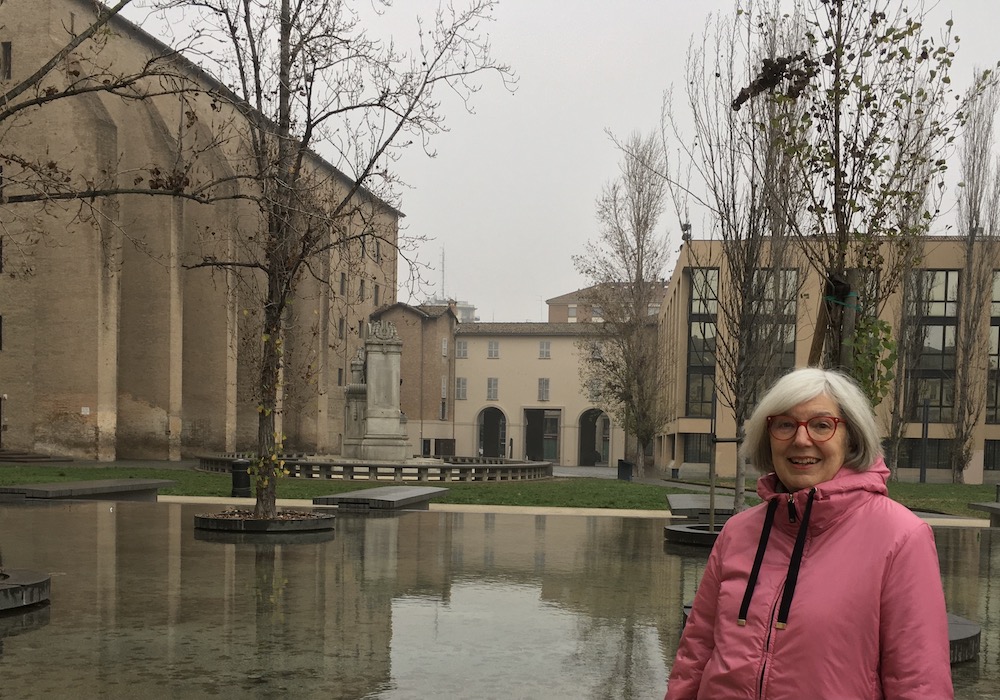Special Series / Iceland 2014
If each city is like a game of chess, the day when I have learned the rules, I shall finally possess my empire, even if I shall never succeed in knowing all the cities it contains.
—Italo Calvino, Invisible Cities
Can you describe the mood of Reykjavik as you feel/see it?
Written in the first days of January—Reykjavík is a bit dark now, but if you like writing about sunrise and sunset the working hours are quite convenient, between 10 AM and 2 PM.
What is your most heartbreaking memory in this city?
If I do not mention love and death, I think of the house that my great grandfather built in the suburb I grew up in. It’s a suburb with no history. The house was kind of historic, my mother was born in the house and I was always very proud of being one of the few with real roots in the suburb. It was big and white with a red roof and kind of the grand center of the suburb full of apartment buildings. My great uncle’s toy store went bankrupt, the bank got the house and one day it was demolished. I asked my family why nobody did anything to save the house but they kind of shrugged sadly. I think that moment made me an activist later, when important issues came up.
What is the most extraordinary detail, one that goes unnoticed by most, of the city?
Reykjavík is built on seven hills like Rome, and the inhabitants are as many as the citizens of Firenze at the time of Dante.
What writer(s) from here should we read?
I can recommend many but in English translation we have some recent good stuff by Sjón, Auður Ava Olafsdóttir, Kristín Ómarsdóttir, Gyrðir Elíasson, and of course, Halldór Laxness, our Nobel Prize laureate.
Is there a place here you return to often?
I have an office in an empty power station by the river Elliðaá. It is a salmon river and I grew up playing around it. I met my wife there when we had a summer job in the river valley.
Is there an iconic literary place we should know?
Yes, indeed. We have the original manuscripts of the Edda from the 1200s in the Arni Magnusson Institute. They are the prime source of Nordic mythology. All we know about Thor, Valhalla, Ragnarök, Gimli, and the Midgard Serpent, one of the few places on earth that preserve a full set of mythology about creation and the end and the forces and gods that rule our world. Something that inspired Borges, Tolkien, Wagner, Marvel Comics, modern dancers, philosophers, Death Metalists, vegans and pagans, nationalists, tree-huggers, Nazis, and Japanese Manga.
Are there hidden cities within this city that have intrigued or seduced you?
Yes—we have hidden cities within cities, invisible cities, unknown worlds in the suburbs, some have grown like mushrooms over the last eight years. We have street names nobody recognizes, places never mentioned in tourist guides, places with no history, no memory—nothing, we have pioneers living on land where no human has lived before, the first person in a brand new house with a trampoline in the garden that still has no flowers or trees. If I was a tourist, I would go there and jump on the trampolines during the day when the suburb is empty and everyone’s downtown working. That would be really fun.
Where does passion live here?
There is a bakery in my neighborhood called Passion—the exact address is Álfheimar 6, 104 Reykjavík.
What is the title of one of your works about Reykjavik and what inspired it exactly?
I live close to a very ugly strip mall district with a KFC, Subway, supermarkets, and one of Iceland's largest parking lots. I feel bad not living close to a glacier, the sea, and having no mountains or birds; or not living in New York or London, or at least downtown Reykjavík, where passion lives. I wondered if I could write poetry about the most unpoetic place. The title of my work Bonus Poetry—about the nonpoetic spaces that surround me. It is a mythological travel though my local Bonus supermarket, based on the Dante’s Divine Comedy. We start in Paradiso, the fruit section—to inferno, the meat counter—into purgatorio, the cleansing fire.
Inspired by Levi, “Outside Reykjavik does an outside exist?”
If you have not made it in Reykjavík, you have not made it anywhere.
Andri Snær Magnason was born in Reykjavik on July 14, 1973, and studied Icelandic Literature at the University of Iceland. He is the author of numerous books including,
Tímakistan, or The Casket of Time (2013), winner of the Icelandic Literary Award for YA /children's books; Dreamland a Self Help Manual for a Frightened Nation, winner of the Icelandic Literary Award for nonfiction; The Story of the Blue Planet, recipient of the Janusz Korczak Honorary Award 2000, The Green Earth Honor Award 2013, and the first children’s book to receive the Icelandic Literary Award for fiction; the bestselling poetry collection Bonus Poetry; and LoveStar, winner of the Philip K Dick Special Citation 2013, the DV Literary Award, and chosen as “Novel of the year” by Icelandic booksellers. Publishers Weekly wrote: “Orwell, Vonnegut, and Douglas Adams are felt on every page, though Magnason is never derivative. His satire and insightful social commentary sweeten the pot and the sheer wackiness of Magnason’s oversized imagination is invigorating.” Magnason has been active in the fight against the destruction of the Icelandic Environment. His book Dreamland takes on these issues and he co-directed a documentary based on the book. Footage from Dreamland and an interview with Magnason can be seen in Charles Ferguson’s Oscar- winning documentary Inside Job. He lives in Reykjavík and has four children.











